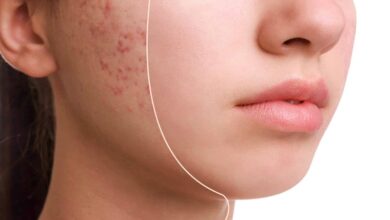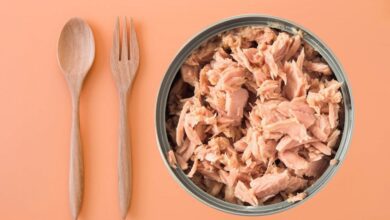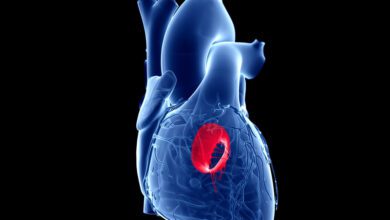Proper healthy nutrition for herniated disc patients

1
It is no secret to anyone that proper nutrition plays an effective and vital role in dealing with some medical conditions, as it plays a helpful role in supporting the healing process. Among the most important of these conditions, we can treat a herniated disc, which causes many feelings of pain and discomfort. So today we will learn about the best foods that can relieve the pain of this disease as much as possible and create feelings of comfort.
What are the best effective foods in dealing with herniated disc cases?


What are the best effective foods in dealing with herniated disc cases?
When suffering from herniated disc disease occurs, patients must at these times adhere to all feasible treatment standards, which include following the orders of the treating physician, in addition to following other auxiliary plans, such as following healthy eating patterns, which we will learn about in detail below.
Among the best and most important foods that patients with herniated disc need, we can mention the following:
First: foods rich in calcium
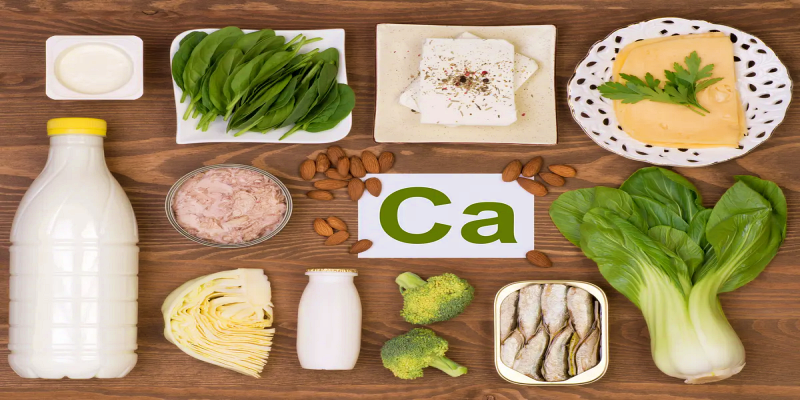

Foods rich in calcium
In general, nutrition plays a very important role in the health of the body, as it directly affects the health of the bones and joints. It is worth noting that this is achieved by following a diet rich in calcium to strengthen bones and improve their efficiency. For clarification, these foods are as follows:
- Milk and all low-fat dairy products, and alternatives such as almond milk or oat milk, all provide calcium and vitamin D for bone health.
- Some types of vegetables, such as kale and okra.
- Nuts such as almonds, hazelnuts, walnuts, sesame seeds and tahini powder.
- Fish such as whitefish, sardines and salmon.
- Soybeans and eggs.
- Some fruits such as figs and apricots.
- Glutamine supplements such as arginine.
Second: Foods rich in dietary fiber
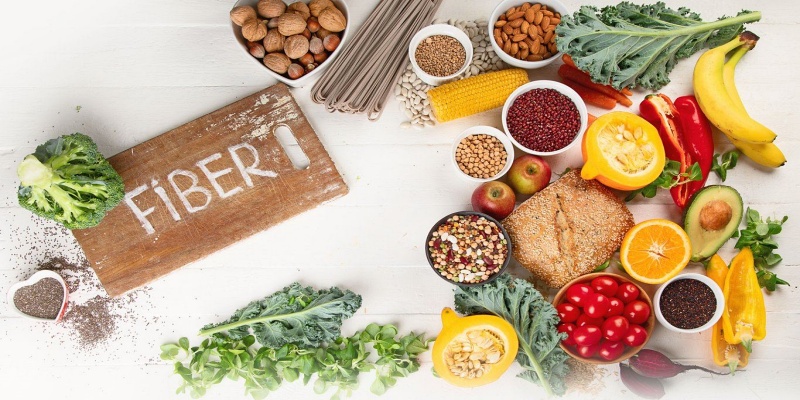

Foods rich in dietary fiber
As we all know that dietary fiber is a very important component of any healthy diet. It is worth noting that foods rich in fiber help greatly support the digestive process, as digestive system problems can cause pressure to accumulate in the abdominal area, which causes pressure on the damaged discs.
Among the most important foods that contain dietary fiber, we can mention the following:
- Some types of fruits such as bananas, oranges, strawberries, pears and apples.
- Vegetables such as potatoes, cabbage, carrots, cauliflower and peas.
- Food grains such as oats, quinoa and brown rice.
- Legumes such as beans and lentils.
- Nuts such as sunflower seeds, pistachios and almonds.
Third: Address the body’s water needs


Eat the body’s water needs
Who among us can complete a single day in his life without drinking water? It is important to know that this element is a major factor in transporting nutrients within the body, which then results in maintaining the lubrication of the discs and preventing some pain from a herniated disc.
It is worth noting that the necessary healthy amount of water is to drink at least eight cups per day, as this is a general guideline for everyone. When wanting to increase hydration levels, it is recommended to eat fruits that provide a large percentage of water, such as watermelon and cantaloupe.
Fourth: Glucosamine sulfate
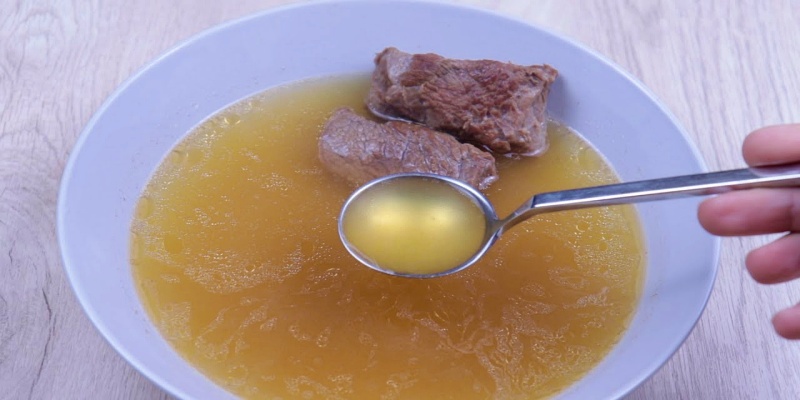

Glucosamine sulfate
Glucosamine sulfate is found naturally within the human body, and it is necessary and important for working on maintaining and repairing collagen within the body as it is the main component of intervertebral discs.
In general, the body uses glucosamine sulfate to form the chemicals needed to repair cartilage, tendons, ligaments, and joint fluids, which are the natural fluids that nourish the joints of the spine. It is worth noting that collagen helps preserve spinal cartilage and complete its repair process.
It should be noted that the best source of glucosamine sulfate is bone broth. In addition to being available in the form of nutritional supplements, the best note is that they should be used under medical supervision.
Fifth: Omega-3 fatty acids
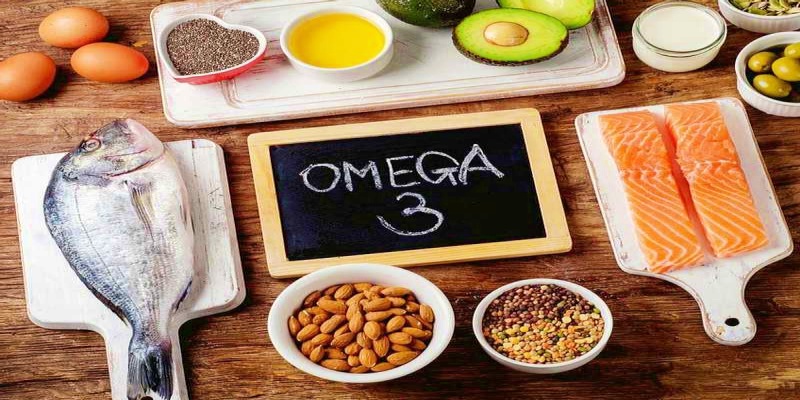

Omega 3 fatty acids
In general, omega-3 fatty acids naturally reduce the body’s inflammatory response, in addition to their effective collagen-forming properties and are used to repair and prevent cartilage and disc damage caused by inflammation.
In addition, these fatty acids can also help repair some damage to the body, especially with regard to disc herniation, as omega-3 fatty acids contain high concentrations of fish oil, which is an excellent anti-inflammatory ingredient. Foods rich in omega-3 fatty acids include canola oil, chia seeds, flaxseeds, salmon, and walnuts
What are the most important foods that should be avoided when suffering from a herniated disc?
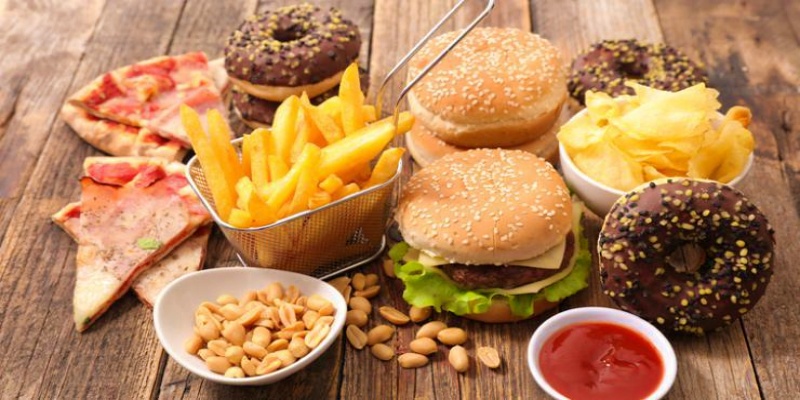

What are the most important foods that should be avoided when suffering from a herniated disc?
Although it is important to eat anti-inflammatory foods, some other considerations must also be taken into account, such as trying to limit or avoid several foods that can increase the levels of inflammation in your body, which are as follows:
– Processed and fried foods, such as fried chicken and potato chips, because they contain a high percentage of unhealthy fats that cause inflammation.
– Sugary foods and drinks, as there is a strong link between eating a lot of sugary foods and the occurrence of metabolic disorders such as diabetes, and then suffering from chronic inflammation occurs, which can exacerbate the symptoms of back pain.
– Foods rich in sodium, as some studies have also shown that following a high-sodium diet enhances immune cells towards producing more pro-inflammatory cytokines. It is worth noting that high-sodium foods include smoked and processed meats, canned meats, and salted nuts.
Trans fats, found in many processed snacks and fast foods, are known for their major role in promoting inflammation within the body.

